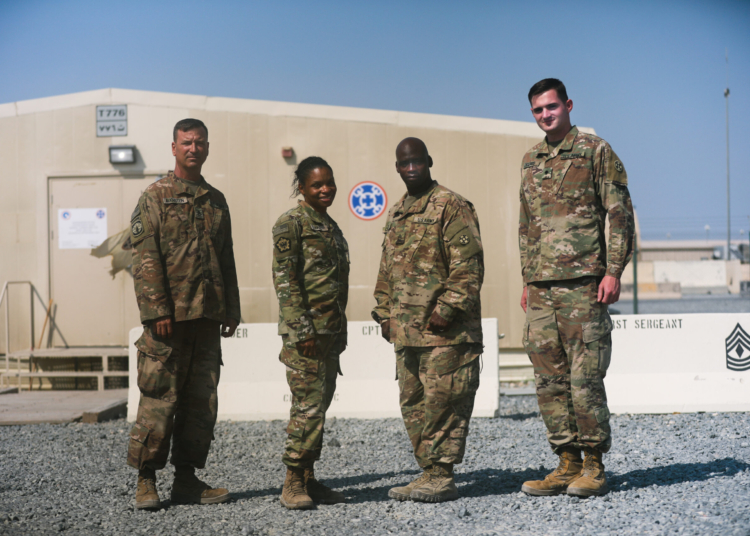The Rhythm of Combat: Understanding the Role of Music in Military Narratives
Music has played a significant role in military narratives throughout history, from ancient battlefields to modern warfare. It has been used to motivate troops, create a sense of unity, and shape the narrative of military conflicts. Drums, bugle calls, national anthems, and patriotic songs have been employed to coordinate troop movements, boost morale, and foster a sense of identity and camaraderie among soldiers. The psychological impact of music in combat is profound, as it influences the emotional state of soldiers and enhances their sense of camaraderie and unity. In modern militaries, music therapy programs and digital platforms have expanded the ways in which music can be integrated into the military experience, providing soldiers with a therapeutic outlet and a means of self-expression. Understanding the profound impact of music in shaping the narratives of war is crucial in appreciating the experiences of those who serve in the military.
The Rhythm of Combat: Understanding the Role of Music in Military Narratives
Introduction
Music has played a significant role in military narratives throughout history. From the drumbeats of ancient battlefields to the anthems of modern warfare, music has served as a powerful tool for motivating troops, creating a sense of unity, and shaping the narrative of military conflicts. In this article, we will explore the various ways in which music has been utilized in military contexts and the impact it has on the combat experience.
The Role of Music in Military Narratives
Music has been an integral part of military narratives for centuries. In ancient times, drums and other percussive instruments were used to set the rhythm of marching troops, communicate commands, and intimidate the enemy. The sound of war drums reverberating across the battlefield was a powerful tool for instilling a sense of fear and urgency in the opposing forces. Similarly, military bands and bugle calls served as a means of coordinating troop movements and boosting morale during times of conflict.
In more recent history, music has been used to rally troops and unify them under a common cause. National anthems and patriotic songs have been employed to foster a sense of identity and camaraderie among soldiers, emphasizing the values and ideals for which they are fighting. Additionally, music has been used to commemorate fallen soldiers and honor their sacrifices, providing a sense of closure and perspective for those who have experienced the brutality of combat.
The Psychological Impact of Music in Combat
The use of music in combat extends beyond its practical applications and serves a profound psychological purpose. The rhythm and melodies of military music can have a powerful effect on the emotional state of soldiers, influencing their mood, focus, and motivation. During times of war, music can provide a sense of comfort and familiarity, serving as a reminder of home and the support of loved ones. Conversely, it can also serve as a conduit for expressing feelings of anger, grief, and solidarity, allowing soldiers to process and cope with the trauma of war.
Moreover, music has the ability to enhance the sense of camaraderie and unity among troops, fostering a shared identity and purpose. When soldiers are exposed to the same melodies and lyrics, they become connected through a common emotional experience, creating a bond that transcends their individual circumstances. This sense of cohesion and solidarity can be a powerful asset in combat situations, as it promotes teamwork, communication, and mutual support among troops.
Modern Applications of Music in Military Contexts
In today’s military, music continues to play a vital role in shaping the narrative of warfare. In addition to traditional uses such as bugle calls and military bands, modern soldiers have embraced popular music as a means of connecting with their emotions and finding solace in the midst of conflict. Many soldiers turn to music as a form of self-expression and as a source of comfort during periods of stress and isolation.
Furthermore, technology has expanded the ways in which music can be integrated into the military experience. Soldiers now have access to a wide range of music through digital platforms, allowing them to curate their own playlists and immerse themselves in the sounds that resonate with their individual experiences. Additionally, music therapy programs have been implemented in military settings to help soldiers address issues such as PTSD, anxiety, and depression, providing a therapeutic outlet for their emotional wounds.
Conclusion
The role of music in military narratives extends far beyond simple entertainment or tradition. It serves as a powerful medium for shaping the emotional and psychological experiences of soldiers, connecting them to their sense of purpose and identity, and fostering a sense of unity and camaraderie. By understanding the profound impact that music has on the combat experience, we can appreciate its significance in shaping the narratives of war and the experiences of those who serve in the military.













